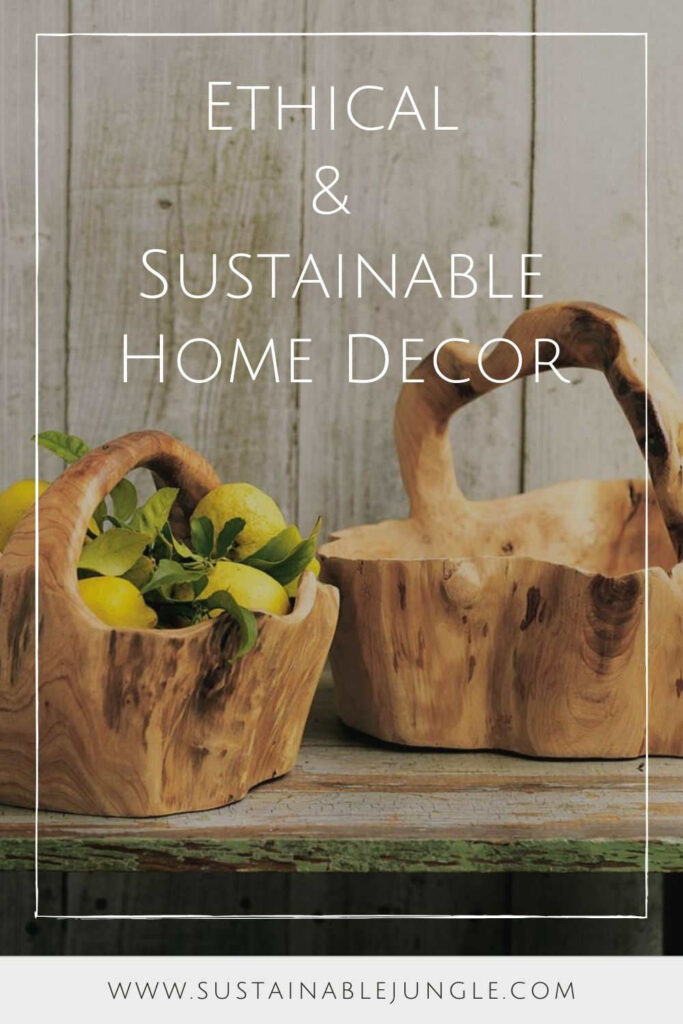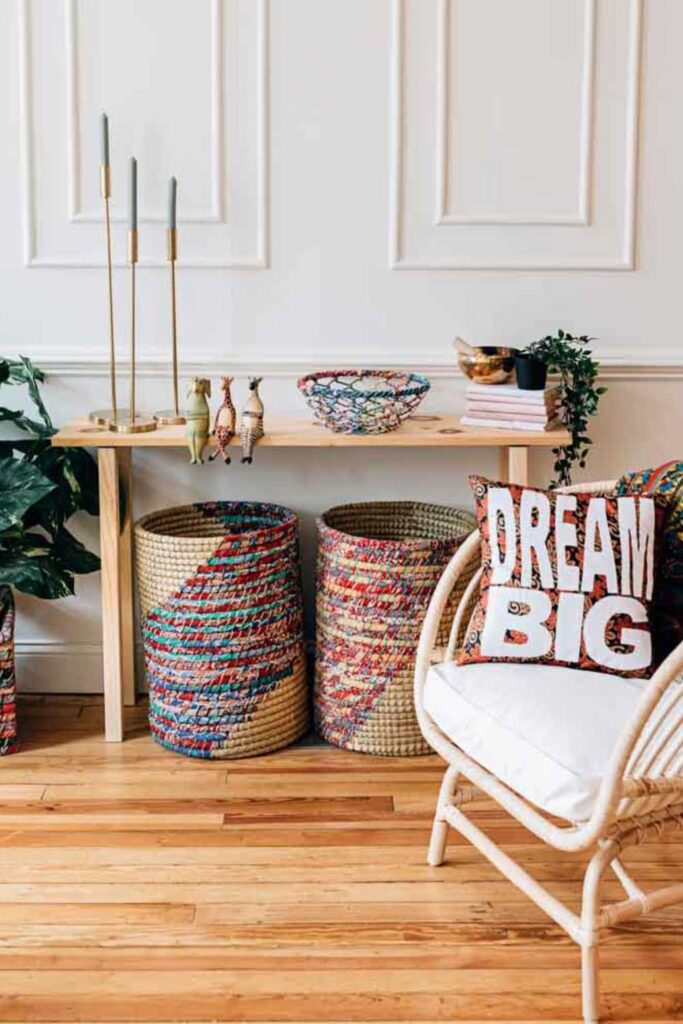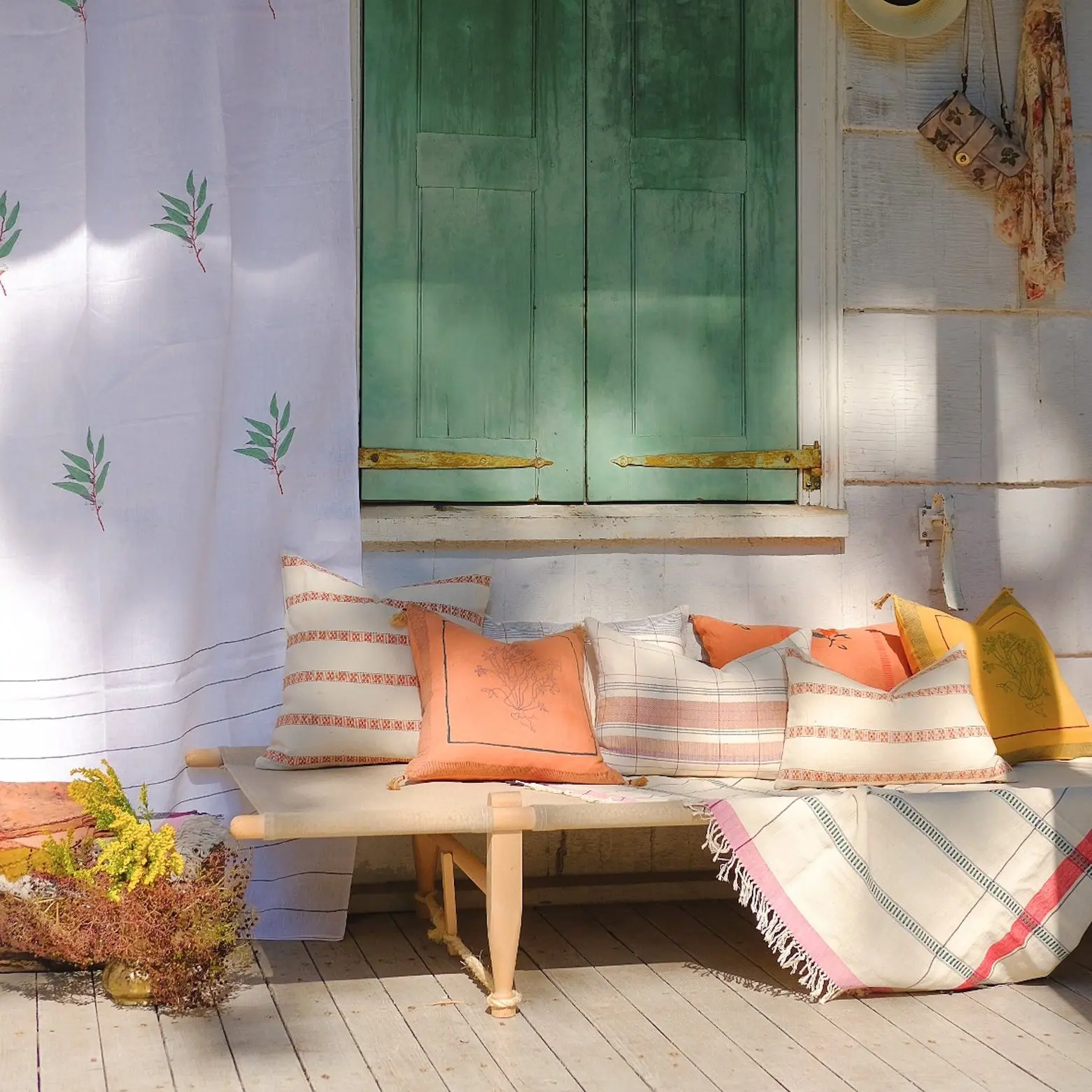Sustainable Home Decor: A Guide to Conscious Design and Ethical Choices
Related Articles: Sustainable Home Decor: A Guide to Conscious Design and Ethical Choices
Introduction
With enthusiasm, let’s navigate through the intriguing topic related to Sustainable Home Decor: A Guide to Conscious Design and Ethical Choices. Let’s weave interesting information and offer fresh perspectives to the readers.
Table of Content
Sustainable Home Decor: A Guide to Conscious Design and Ethical Choices

In a world increasingly focused on environmental responsibility, the home decor industry is undergoing a significant shift. Consumers are demanding products that are not only aesthetically pleasing but also ethically sourced and environmentally friendly. This demand has led to a burgeoning market for sustainable home decor products, offering a wide range of options that minimize environmental impact while enriching living spaces.
Understanding Sustainable Home Decor
Sustainable home decor encompasses products that prioritize ecological and social responsibility throughout their lifecycle, from raw material sourcing to production, distribution, and eventual disposal. This commitment translates into a focus on:
- Eco-Friendly Materials: Utilizing materials derived from renewable sources like bamboo, cork, recycled plastic, and sustainably harvested wood.
- Ethical Production: Supporting manufacturers who prioritize fair labor practices, safe working conditions, and responsible resource management.
- Durability and Longevity: Investing in products designed for long-term use, reducing the need for frequent replacements and minimizing waste.
- Minimal Environmental Impact: Opting for products with low-emission manufacturing processes and minimal packaging, reducing carbon footprint and pollution.
The Benefits of Sustainable Home Decor
Choosing sustainable home decor products offers numerous benefits, both for the environment and the consumer:
- Reduced Environmental Impact: By selecting products made from recycled or renewable materials and minimizing waste, consumers can contribute to a healthier planet.
- Support for Ethical Practices: Purchasing from companies committed to fair labor and responsible sourcing promotes ethical business practices and empowers workers.
- Improved Indoor Air Quality: Natural and organic materials often contribute to better indoor air quality, promoting a healthier living environment.
- Enhanced Aesthetics: Sustainable materials and craftsmanship often result in unique and beautiful designs, adding a touch of individuality and character to homes.
- Long-Term Savings: Durable, well-crafted products last longer, reducing the need for frequent replacements and saving money in the long run.
Exploring Sustainable Home Decor Categories
The world of sustainable home decor is vast and diverse, encompassing various categories:
1. Furniture:
- Recycled Plastic Furniture: Innovative designs utilize recycled plastic bottles and other waste materials, creating stylish and durable furniture pieces.
- Bamboo Furniture: Lightweight, strong, and sustainable, bamboo offers a versatile option for everything from chairs and tables to bed frames and shelves.
- Solid Wood Furniture: Choosing sustainably harvested wood from certified sources ensures responsible forestry practices and the preservation of natural ecosystems.
- Upcycled Furniture: Giving new life to vintage or discarded furniture through creative repurposing and restoration, promoting resource conservation and unique aesthetics.
2. Lighting:
- LED Lighting: Energy-efficient LED bulbs significantly reduce electricity consumption compared to traditional incandescent bulbs, minimizing environmental impact.
- Solar-Powered Lighting: Utilizing solar energy to power outdoor lighting, reducing reliance on electricity and promoting energy independence.
- Recycled Materials Lighting: Incorporating recycled materials like glass and metal into lampshades and fixtures, promoting resource conservation and unique designs.
3. Textiles and Fabrics:
- Organic Cotton: Grown without harmful pesticides and fertilizers, organic cotton is a natural and sustainable choice for textiles.
- Hemp: A strong, durable, and renewable fiber, hemp offers an alternative to cotton and synthetic fabrics.
- Recycled Fabrics: Upcycling discarded textiles into new fabrics, reducing waste and promoting circularity in the textile industry.
- Natural Fibers: Utilizing materials like wool, linen, and jute, which are biodegradable and renewable, promoting sustainable textile production.
4. Home Accessories:
- Recycled Glassware: Transforming recycled glass into decorative pieces like vases, bowls, and candle holders, promoting resource conservation and unique aesthetics.
- Cork Products: Utilizing the bark of cork trees, a renewable and sustainable material, for coasters, placemats, and other home accessories.
- Ceramic and Pottery: Supporting local artisans and workshops that utilize traditional techniques and sustainable materials for handcrafted ceramics.
- Handmade and Fair Trade Products: Choosing handcrafted items from artisans who prioritize fair labor practices and sustainable materials, supporting ethical production and unique designs.
5. Paints and Finishes:
- Low-VOC Paints: Selecting paints with low volatile organic compound (VOC) emissions, reducing indoor air pollution and promoting healthier living spaces.
- Natural Finishes: Utilizing plant-based finishes like beeswax and linseed oil, which are non-toxic and biodegradable, promoting sustainable and healthy living environments.
- Recycled Paint: Choosing paints formulated with recycled pigments and binders, promoting resource conservation and reducing environmental impact.
FAQs about Sustainable Home Decor
1. Is sustainable home decor more expensive?
While some sustainable products might have a slightly higher initial cost, their durability and longevity often translate into long-term savings. Additionally, the environmental and social benefits associated with sustainable products contribute to a greater sense of value and well-being.
2. Where can I find sustainable home decor products?
Numerous online retailers and local stores specialize in sustainable home decor. Additionally, searching for local artisans and makers who prioritize ethical practices and sustainable materials can lead to unique and handcrafted pieces.
3. How can I ensure the sustainability of the products I buy?
Look for certifications like Fair Trade, GOTS (Global Organic Textile Standard), FSC (Forest Stewardship Council), and Cradle to Cradle, which indicate adherence to ethical and sustainable practices.
4. What can I do with old home decor items?
Consider donating them to charities or thrift stores, upcycling them into new pieces, or repurposing them for other uses.
5. How can I incorporate sustainable home decor into my existing space?
Start by making small changes, like replacing a few light bulbs with energy-efficient LEDs or adding a few sustainable home accessories. Gradually incorporate more sustainable elements as you update your home decor.
Tips for Choosing Sustainable Home Decor
- Research Brands: Investigate the sourcing, production, and environmental practices of the brands you choose.
- Look for Certifications: Identify products with certifications like Fair Trade, GOTS, FSC, and Cradle to Cradle.
- Support Local Artisans: Explore local markets and workshops for handcrafted items made from sustainable materials.
- Consider Upcycling and Repurposing: Give new life to old furniture and accessories, reducing waste and promoting creativity.
- Prioritize Durability and Longevity: Invest in well-crafted products designed for long-term use, minimizing the need for replacements.
Conclusion
Sustainable home decor is more than just a trend; it’s a conscious choice that reflects a commitment to environmental responsibility and ethical practices. By embracing sustainable materials, supporting ethical manufacturers, and prioritizing durability, consumers can create beautiful and functional living spaces that contribute to a healthier planet and a more just society. As the demand for sustainable home decor continues to grow, the market will continue to expand, offering an increasingly diverse range of options for creating stylish and conscious homes.








Closure
Thus, we hope this article has provided valuable insights into Sustainable Home Decor: A Guide to Conscious Design and Ethical Choices. We hope you find this article informative and beneficial. See you in our next article!